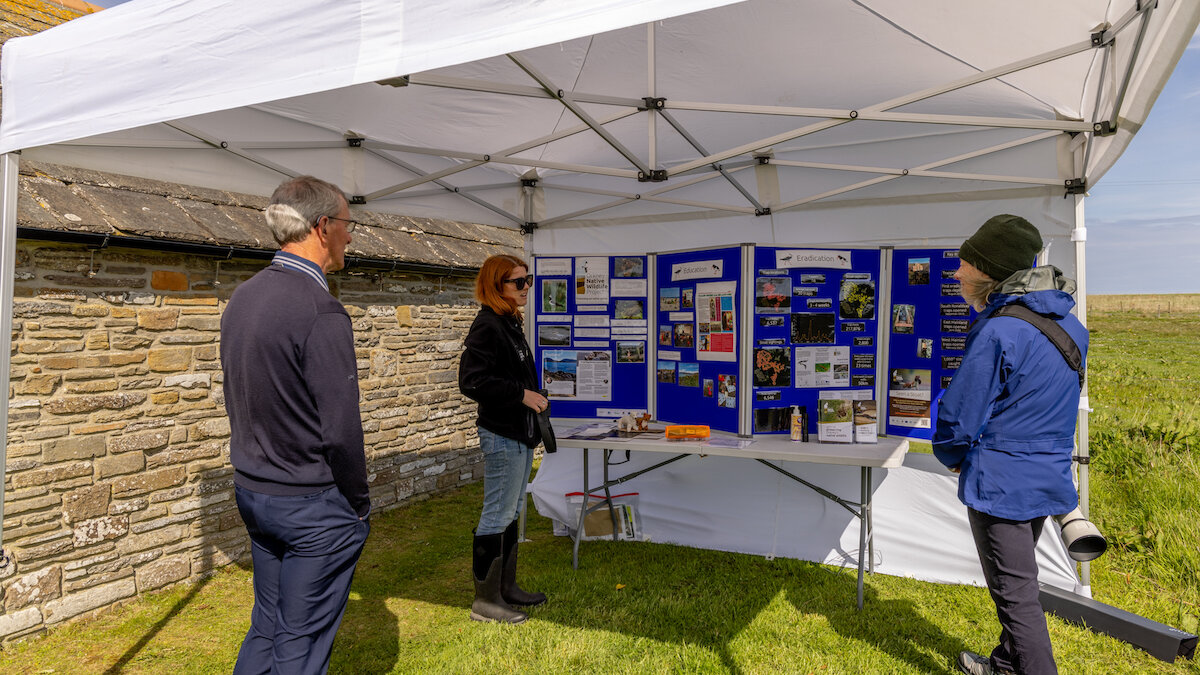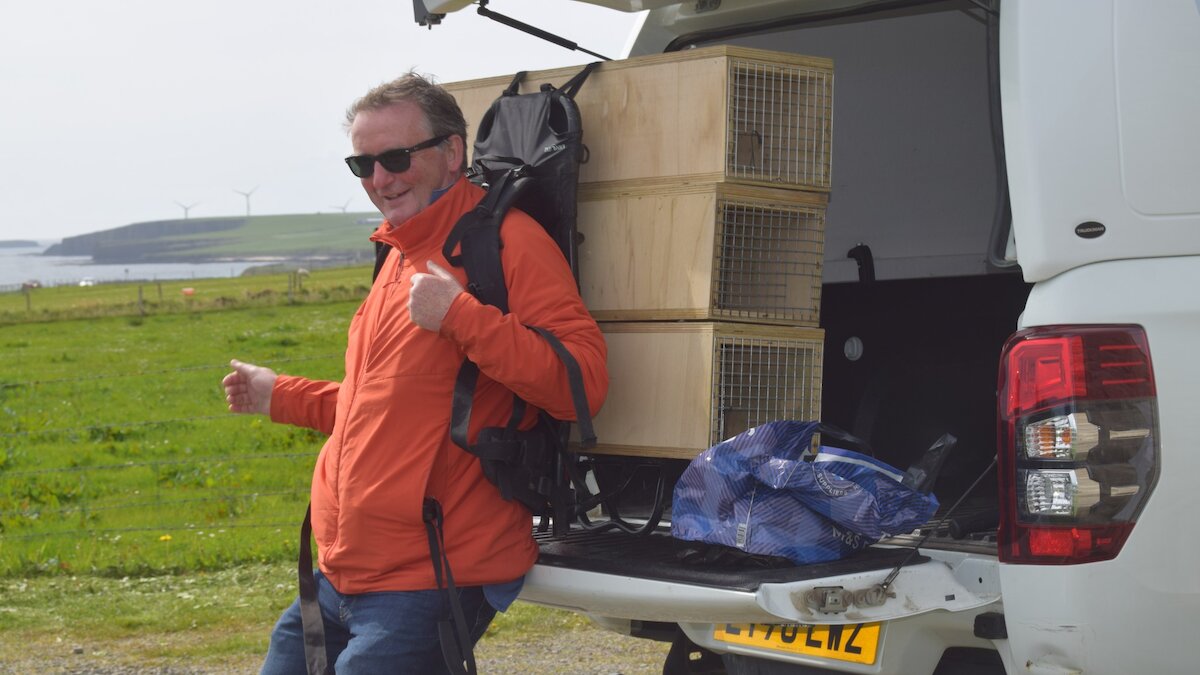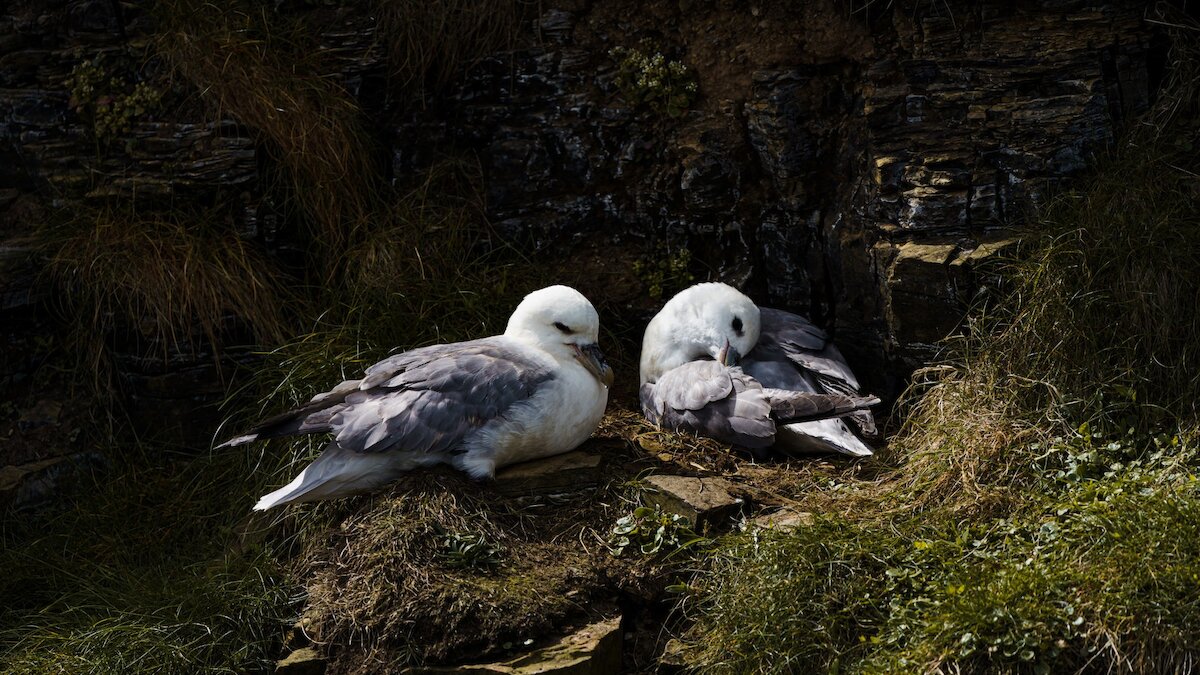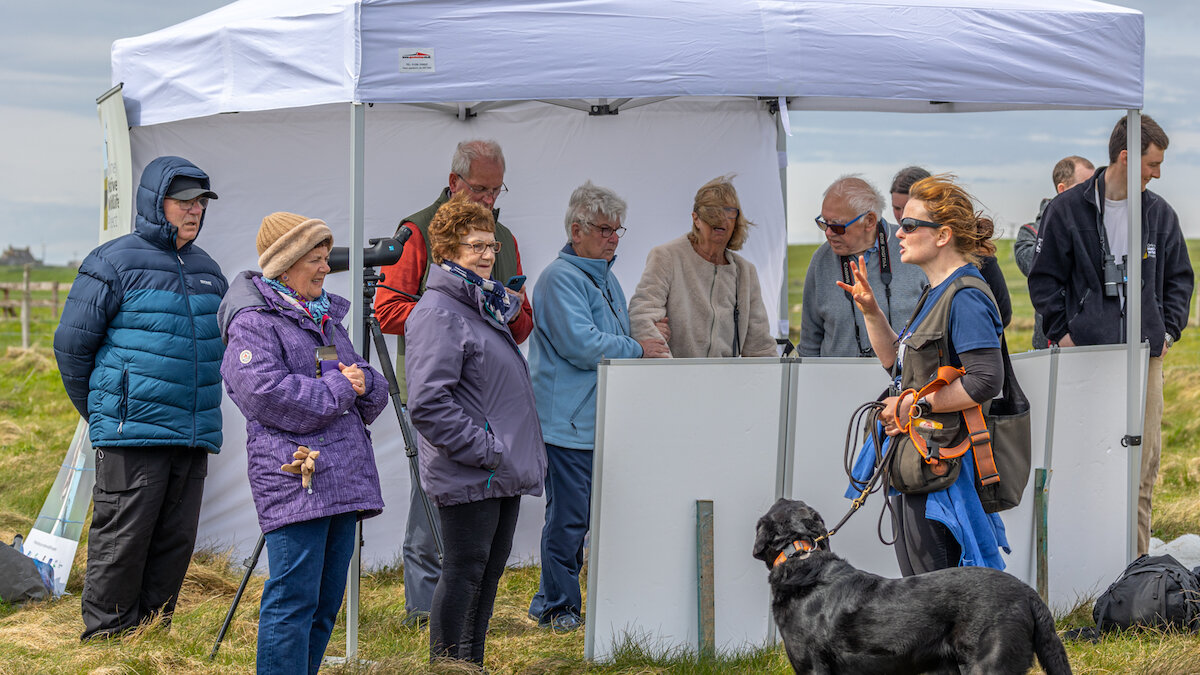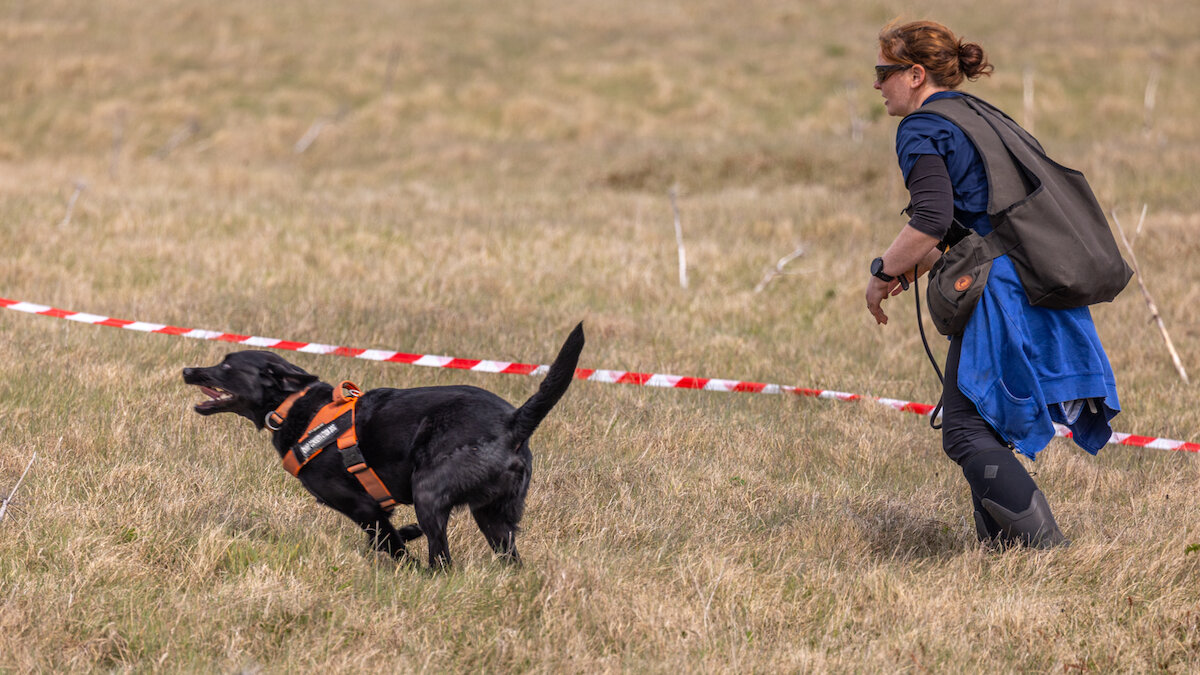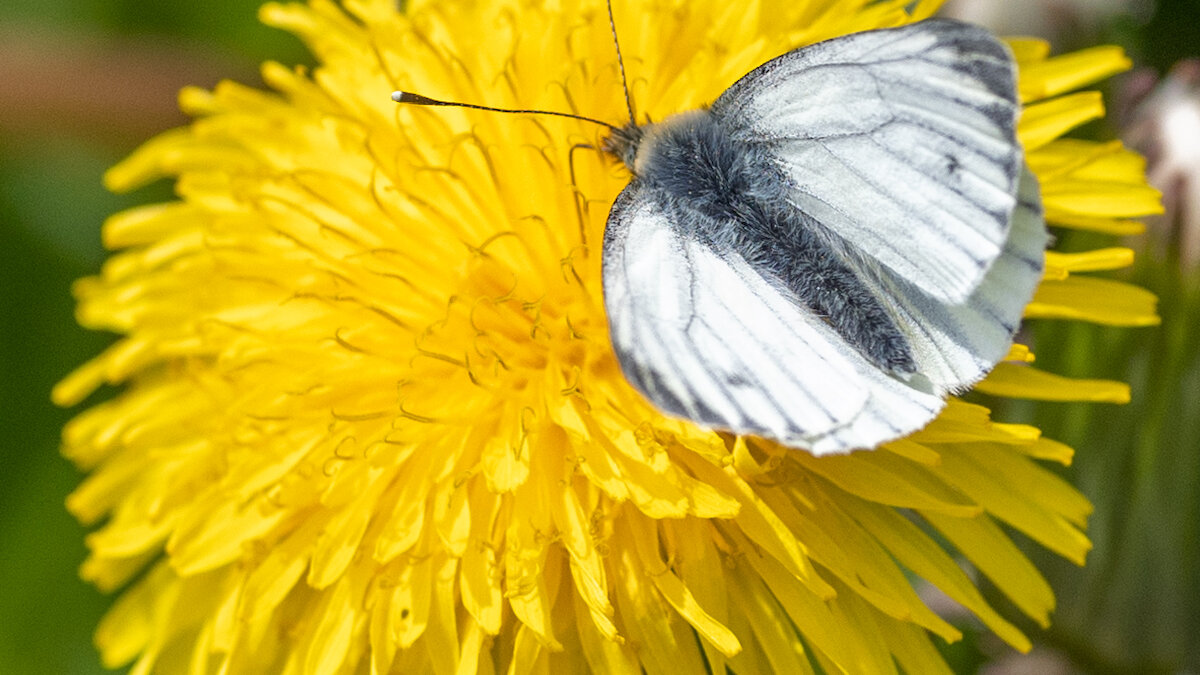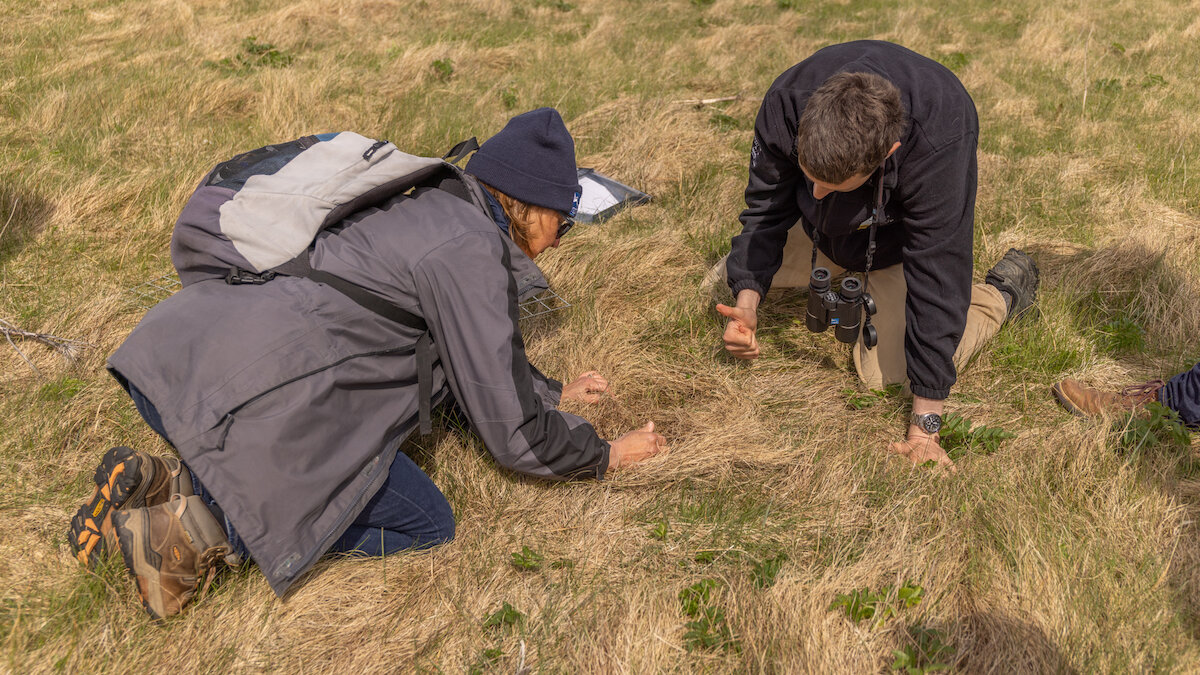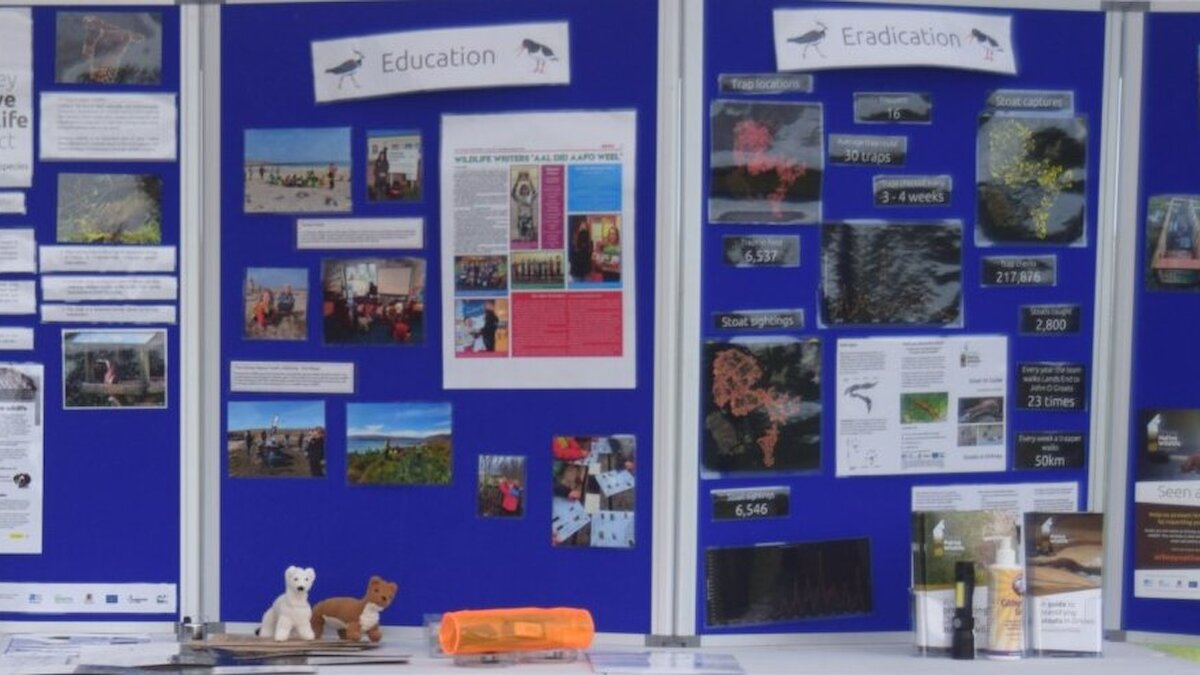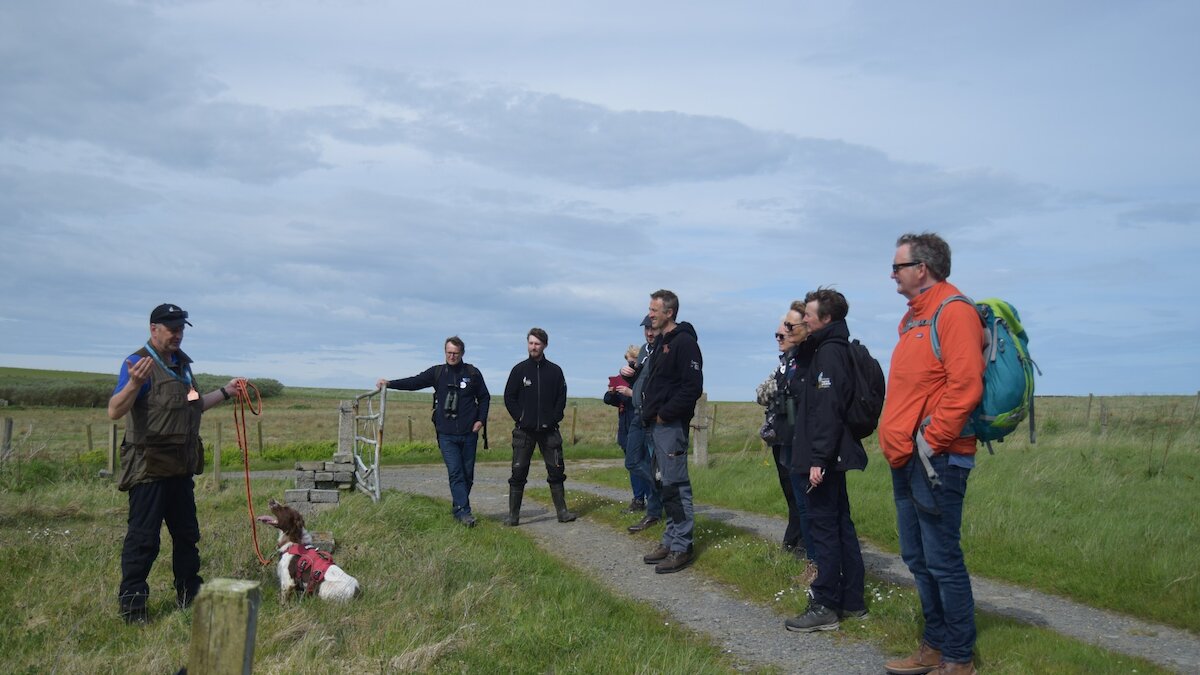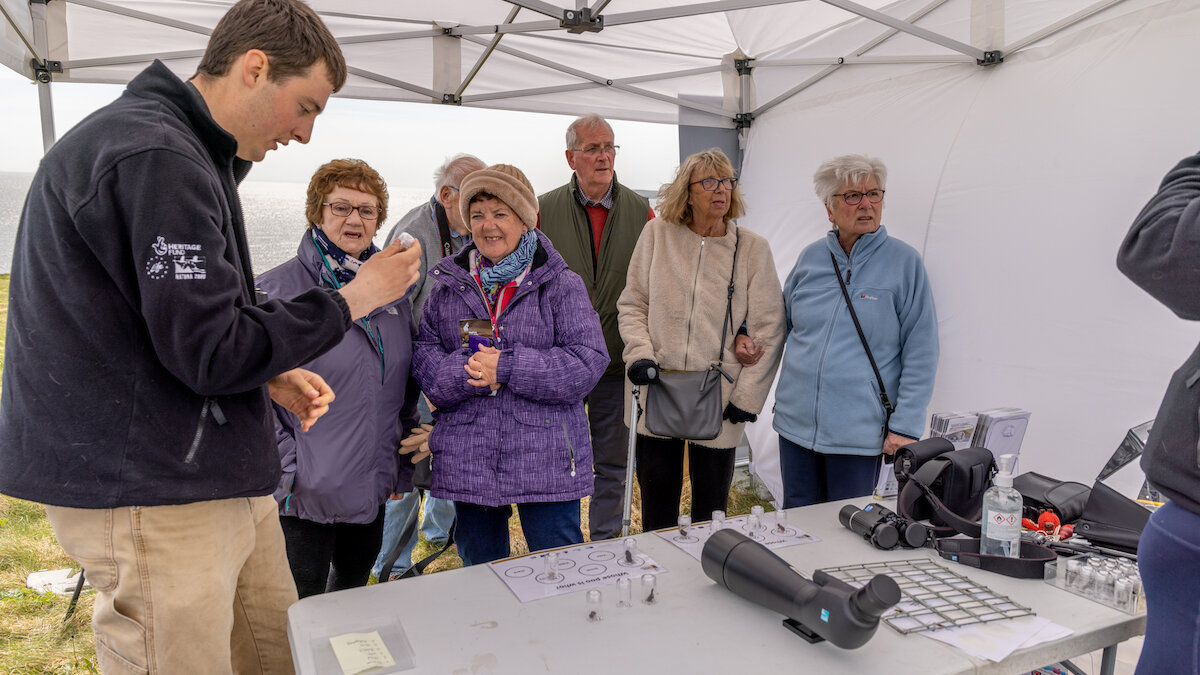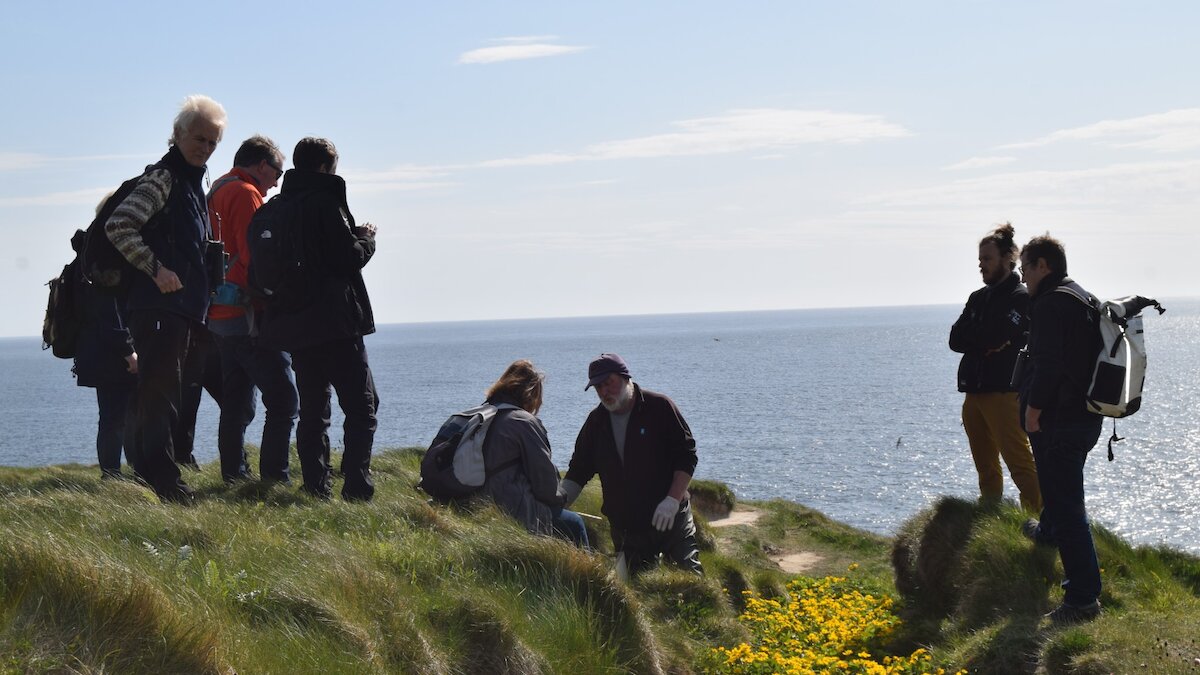
Welcome to the latest news and updates from the Orkney Native Wildlife Project. New to our blog and want to find out more about the project, how to volunteer with us or have a question? Visit our Facebook page or contact us. All the details on how you can get in touch are at the top and bottom of every web page.
Deerness Drop-in
Everyone is welcome to come along to our informal drop-in at the Deerness Community Hall on Thursday 23 June. We will be there from 2.30pm to 5.30pm to answer your questions and have a blether about the next stage of the eradication we are testing in the parish. Pop down and see us while checking out the Orkney mobile library!
Project open day Friday 20 May
We were delighted to welcome around 90 folk down to the Mull Head carpark at our project open day on 20 May. It was wonderful to be back in full flow after the pandemic restrictions. Everyone was really interested and enjoyed some dog demonstrations and a chance to be a vole detective amongst the many enjoyable activities.
“I was amazed at the dog’s ability and there was so much information there I hadn’t known before – It was great and really interesting!” said one visitor on the day. The event celebrated the EU Life 30th anniversary and was a fitting celebration of Orkney wildlife as part of the annual Orkney Nature Festival which was back live this year.
Our two residential volunteers, Arthur and Kirsty, said: “It was great to get out and chat to everyone about the amazing wildlife in Orkney. Since moving here we have been amazed by what we have seen, and it was really lovely to be able to share this with the visitors to the open day.”
Like Arthur and Kirsty, the whole team was thrilled by the number of people who came to find out about us and how they could help protect Orkney’s native wildlife. We were overwhelmed by the public support at our event, so thank you to all that attended. It was an incredibly enjoyable day showing all that the Orkney Native Wildlife Project does! We are looking forward to meeting and greeting more folk now, as we plan to be at the Orkney agricultural shows in August.
Trapping update
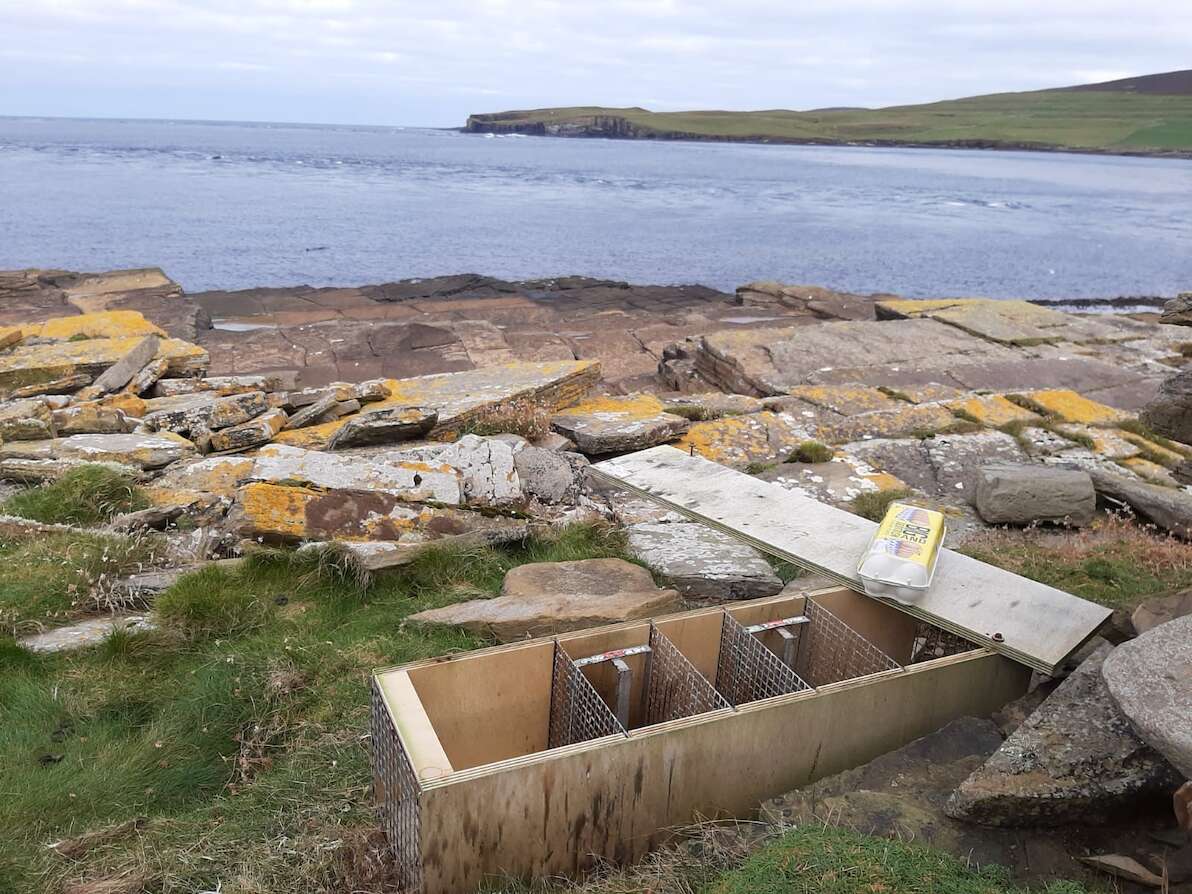 Since we last reported our trapping statistics in the winter, we have seen a steady decrease in the total number of stoats caught. This is to be expected for this time of year, as the breeding season brings a plentiful and easy-to-catch supply of food for stoats. The increased supply of eggs and young understandably attracts stoats away from the bait in the trap boxes. Stoat numbers can also be expected to decline as the eradication progresses and fewer remain.
Since we last reported our trapping statistics in the winter, we have seen a steady decrease in the total number of stoats caught. This is to be expected for this time of year, as the breeding season brings a plentiful and easy-to-catch supply of food for stoats. The increased supply of eggs and young understandably attracts stoats away from the bait in the trap boxes. Stoat numbers can also be expected to decline as the eradication progresses and fewer remain.
The trapping team are now split between the regular checks of over 6,000 trap boxes in the network and swift responding to the stoat sightings sent into us. These teams are focussed on responding to sightings and are spending a great deal of time modifying the trap placement and technique to catch those elusive trap-shy stoats. You can see the increase in deployed traps in the statistics below. There has been a massive reduction in the stoat population after the last few years with over 2,800 stoats caught since August 2019. The stoat sightings sent into us really help the team find and detect the remaining ones and build on our successes that have resulted in this major reduction in the population over the last three years. Reporting where stoats are seen is even more critical as groups of stoats are already being spotted around Orkney as breeding season is in full swing. If you spot and watch a family of stoats the extra details really help us. The invasive non-native stoats in Orkney are not as shy as they are in the rest of the UK where they are a native species. So, it would be easy to watch a group of stoats and send onto us how many were seen, which direction they travelled in, whether they were disappearing into a den or carrying food. A short video taken on a smart phone of what they are doing would be most welcome! All this detail is priceless information for the trap team and helps them amend the network successfully.
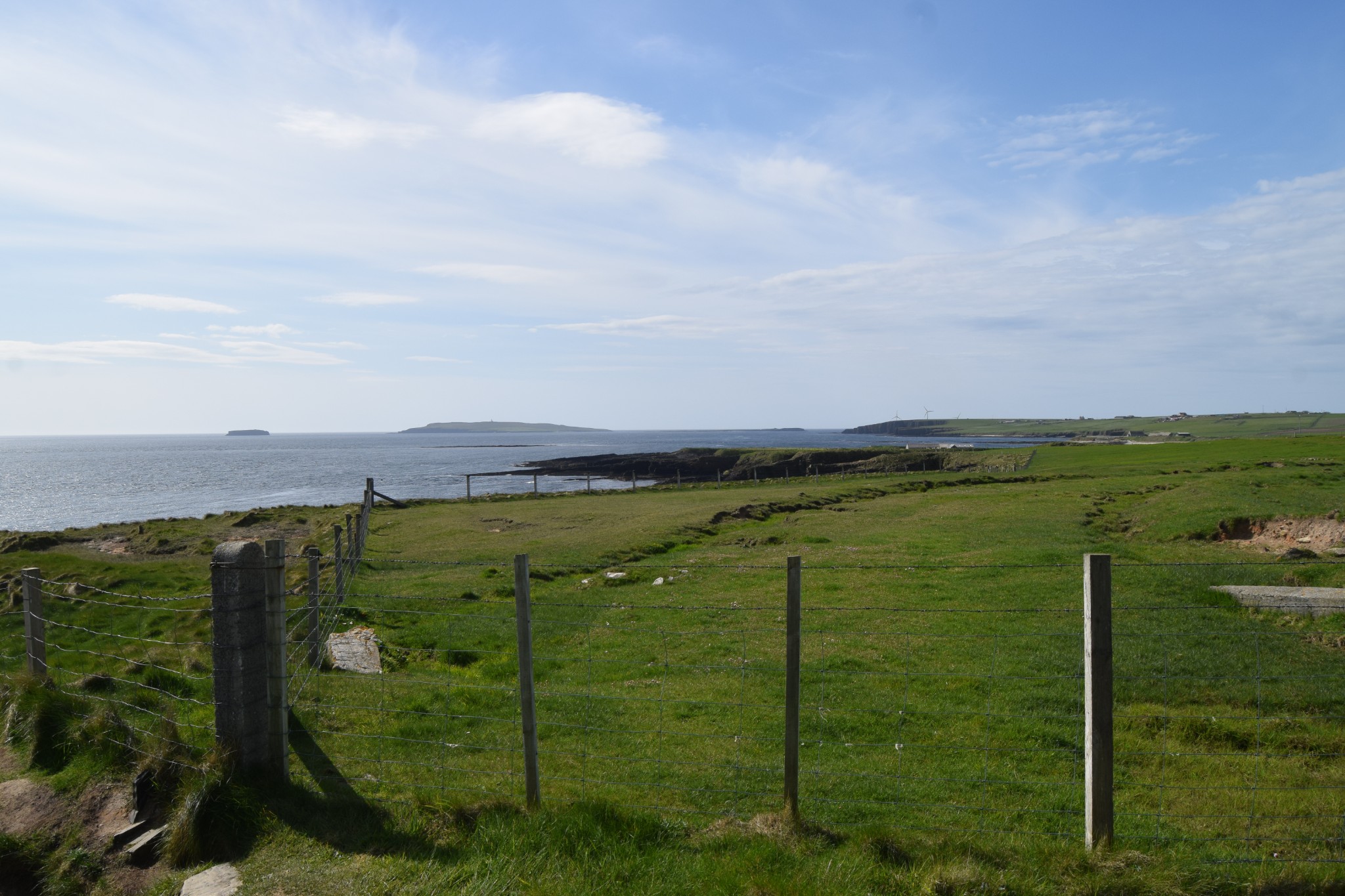
The quicker you tell us when and where you saw the stoats the more effective our response is - so please do let us know the details as soon as you see a stoat. Some areas of Orkney are more stoat ‘hotspots’ than others and the terrain over at Mullhead is one such area very attractive to stoats. In May alone four stoat sightings there resulted in 10 stoats caught within days of receiving the report! This is thanks to the detailed information provided and folks letting us know on the actual day that they saw the stoats.
We always welcome your sightings of stoats so do please send them into us as soon as possible. You can pop them through our website or, if the phone signal isn’t great, just give us a call on 01856 881451 and someone will be happy to take the details.
Feb 2022 | March 2022 | April 2022 | May 2022 | Project total *** | |
Trap boxes deployed in the field | 82 | 174 | 86 | 122 | 6,353 |
Individual traps checked* | 9,792 | 12,220 | 10,464 | 8,544 | 220,675 |
Stoats caught** | 51 | 35 | 26 | 11 | 2,806 |
* Many trap boxes contain two traps
** The stoats are killed using a type of lethal, humane trap – the DOC 200 – which is approved by the Spring Trap Approval Order for Scotland and the UK and meets the welfare standards defined by the Agreement on International Humane Trapping Standards (AIHTS).
*** Total statistics start date from 1 August 2019.
The wire-tied entrances to the trap boxes have significantly reduced the numbers of other animals being caught. However, there are occasions when some small animals still find their way into trap boxes and this time of year there a tiny number of young that find their way into the boxes. However, these incidents remain incredibly rare in the context of the large number of traps and trap checks. Nor will these isolated incidents have a significant impact on the overall population of this other wildlife compared to the impact of stoats.
Since the end of January 2022 until end of May, there have been 41,020 trap checks. In addition to the 118 stoats caught, an additional 1,300 rats, 154 rabbits, 117 mice, 1 frog, 13 voles and 24 starlings have been found in the trap boxes in those four months.
Keep up to date
Until our next issue you can keep up with our progress via our Facebook page and our monthly column in the Orcadian newspaper. We welcome your feedback so if you have any questions at all please feel free to contact us.

